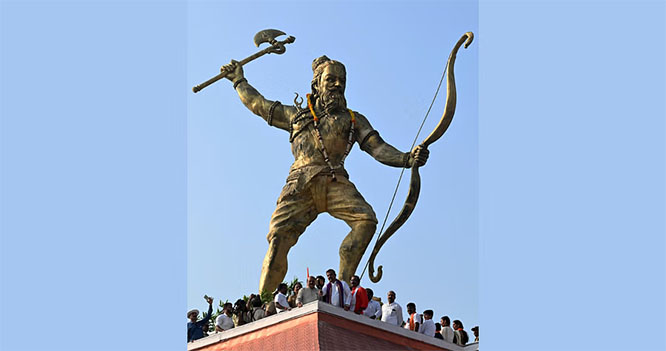Singapore, Nov 15: Fifteen Asia-Pacific nations, including China, on Sunday signed the world's biggest trade agreement, the Regional Comprehensive Economic Partnership (RCEP), sans India with hopes that it will help recover from the shocks of the COVID-19 pandemic.
The RCEP was signed after eight years of negotiations at the conclusion of annual summit of Southeast Asian leaders and their regional partners, held virtually this year due to the COVID-19 pandemic.
The agreement, which covers almost a third of the world economy, will progressively lower tariffs across many areas in the coming years, reported Channel News Asia.
After the signing, all countries would have to ratify the RCEP within two years before it becomes effective.
India, one of the leading consumer-driven market in the region, pulled out of talks last year, concerned that the elimination of tariffs would open its markets to a flood of imports that could harm local producers.
But other nations have said in the past that the door remains open for India's participation in the RCEP, influenced by China.
The RCEP was first proposed in 2012 and loops in 10 ASEAN economies- Indonesia, Malaysia, the Philippines, Singapore, Thailand, Brunei, Vietnam, Laos, Myanmar and Cambodia- along with China, Japan, South Korea, New Zealand and Australia.
Host country Vietnam's Prime Minister Nguyen Xuan Phuc said the COVID-19 pandemic has harmed global and regional trade and investment flows, including the countries participating in the RCEP talks.
The global and regional economies are facing huge obstacles and challenges caused by not only COVID-19 but also decreased global trade, he was quoted as saying by the Vietnam News Agency (VNA).
“The conclusion of the negotiations of the RCEP, the largest free trade agreement in the world, will send a strong message of ASEAN's leading role in supporting the multilateral trade system, helping to create a new trading structure in the region,” VNA quoted Phuc as saying.
Singapore Prime Minister Lee Hsien Loong said he joins fellow RCEP countries "in hoping that India too, will be able to come on board at some point so that the participation in the RCEP will fully reflect the emerging patterns of integration and regional cooperation in Asia."
They make up nearly a third of the world's population and account for 29 per cent of global gross domestic product, he said.
Lee, who led Singapore's delegation, hailed the signing of the RCEP as a "major milestone" and congratulated the 15 participating countries.
"We have reached a major milestone of signing this agreement today. It has taken us eight years, 46 negotiating meetings and 19 ministerial meetings to get here. I am very grateful for the tireless efforts of ministers and negotiators from all participating countries who have worked so hard during the process.
"The RCEP is a major step forward for the world, at a time when multilateralism is losing ground and global growth is slowing," said the Singapore premier.
Now, "the hard work of implementing the agreement and encouraging our businesses to take full advantage of it begins," he added.
"We have all made difficult trade-offs to advance the negotiations. And we will have to work hard to persuade our citizens that the RCEP will benefit them," the Channel quoted Lee as saying.
"But I have no doubt that the RCEP is a plus for all of us, and will help stem the tide against globalisation and economic integration.
"Singapore looks forward to working with participating countries on the timely implementation of this momentous agreement," Lee assured.
Malaysia's trade minister Mohamed Azmin Ali, ahead of the summit, had said, "after eight years of negotiating with blood, sweat and tears, we have finally come to the moment where we will seal the RCEP Agreement this Sunday."
The four-day ASEAN summit included meetings between Southeast Asian leaders and their counterparts from China, Japan and South Korea in the ASEAN Plus Three Summit, as well as the East Asia Summit and RCEP Summit.
The 15 RCEP countries agreed on the terms of the deal last year, setting up the path for it to be signed during the summit.
The ASEAN is considered as one of the most influential groupings in the region, and India and several other countries including the US, China, Japan and Australia are its dialogue partners.
The virtual ASEAN summit, which kicked-off on Thursday, is taking place amid China's aggressive behaviour in the disputed South China Sea. A number of ASEAN countries have territorial disputes with China in the South China Sea.
Beijing claims almost all of the 1.3 million square-mile South China Sea as its sovereign territory. China has been building military bases on artificial islands in the region which, in parts, is claimed by Brunei, Malaysia, the Philippines, Taiwan and Vietnam.
Beijing has impeded commercial activity like fishing and mineral exploration by neighbouring nations in recent years, saying the ownership of the resource-rich maritime territory belongs to China for hundreds of years.








Comments
Add new comment